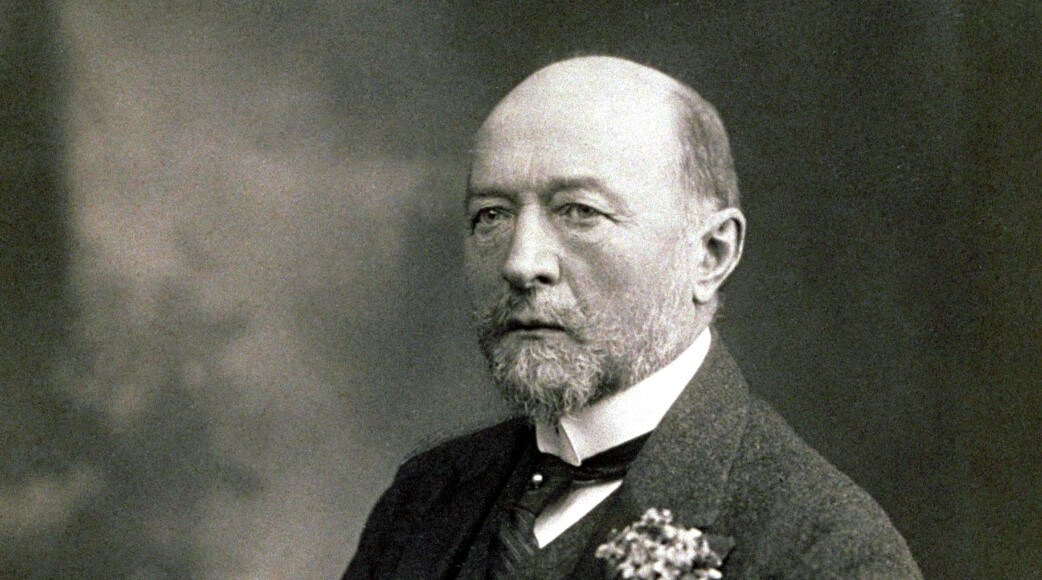Learn about the remarkable life and groundbreaking contributions of Emil von Behring, a German physiologist who revolutionized the fields of immunology and bacteriology. Discover his key achievements, including the development of diphtheria antitoxin and serum therapy, leading to the first Nobel Prize in Medicine.

Emil von Behring (1854-1917) was a German physiologist who is best known for his groundbreaking work in the field of immunology. He made significant contributions to the understanding of immunity and developed the first effective antitoxin serum against diphtheria, which marked a major advancement in medical science.
In recognition of his pioneering work, Emil von Behring was awarded the first Nobel Prize in Physiology or Medicine in 1901 for his contributions to the development of serum therapy, particularly the discovery of the diphtheria antitoxin. His research laid the foundation for the use of antitoxins and later vaccines to combat various infectious diseases, saving countless lives and shaping modern medicine’s approach to immunology.
Biography
Emil von Behring, born Emil Adolf Behring on March 15, 1854, in Hansdorf (now known as Lawice), in the Province of Prussia, was a German physiologist and immunologist. He grew up in a farming family and initially trained as a military doctor. However, his interest in medical research and immunology led him to pursue a career in the field of bacteriology and serum therapy.
In 1888, Emil von Behring began working with renowned bacteriologist Robert Koch at the Institute for Infectious Diseases in Berlin. There, he focused on studying the immune response of animals to bacterial infections and toxins. During this time, he conducted experiments with the bacterium causing diphtheria, trying to find a way to combat the deadly disease that had significant mortality rates, especially in children.
In 1890, Behring made a groundbreaking discovery when he successfully developed an antitoxin serum against diphtheria. He found that the blood of animals previously exposed to the diphtheria toxin contained substances that could neutralize the toxin’s harmful effects. By isolating these antibodies and injecting them into infected animals, he was able to protect them from the disease and even cure them if they were already sick.
Behring’s development of diphtheria antitoxin marked the beginning of serum therapy and revolutionized the treatment of infectious diseases. It also laid the groundwork for the later development of vaccines. His work saved countless lives and brought him worldwide acclaim and recognition.
In 1901, Emil von Behring was awarded the first Nobel Prize in Physiology or Medicine for his contributions to the field of immunology and his groundbreaking work on serum therapy. The Nobel Committee acknowledged his significant impact on medical science and his dedication to improving public health.
Later in his life, Behring continued his research and made important contributions to the understanding of tuberculosis and tetanus. He was also involved in the establishment of the Behringwerke, a pharmaceutical company dedicated to producing vaccines and sera for medical use.
Emil von Behring’s work and discoveries have had a lasting impact on the field of immunology, and his legacy continues to influence modern medicine’s approach to combating infectious diseases through vaccination and immunotherapy. He passed away on March 31, 1917, in Marburg, Germany, leaving behind a rich scientific heritage that continues to benefit humanity to this day.
Contributions to Science
Emil von Behring made several significant contributions to the field of science, particularly in the areas of immunology and bacteriology. Some of his key contributions include:
- Development of Diphtheria Antitoxin: Behring’s most notable achievement was the development of the first effective antitoxin serum against diphtheria. Through his experiments, he demonstrated that the blood of animals previously exposed to diphtheria toxins contained antibodies capable of neutralizing the harmful effects of the toxin. He successfully isolated these antibodies and used them to create a therapeutic serum, which became a lifesaving treatment for diphtheria patients.
- Pioneering Serum Therapy: Behring’s work laid the foundation for the field of serum therapy, which involves using antibodies from immune individuals to treat diseases in non-immune individuals. This groundbreaking approach transformed the treatment of infectious diseases and served as the precursor to the development of vaccines.
- Nobel Prize in Physiology or Medicine: In 1901, Emil von Behring was awarded the first Nobel Prize in Physiology or Medicine for his significant contributions to the field of immunology and the development of serum therapy. This prestigious award recognized his groundbreaking discoveries and their immense impact on medical science.
- Contributions to Tetanus Research: Behring also conducted important research on tetanus (lockjaw) and developed a therapeutic antitoxin for its treatment. Similar to his work on diphtheria, he used serum therapy to protect against and treat tetanus infection.
- Behringwerke: Emil von Behring was involved in the establishment of Behringwerke, a pharmaceutical company named in his honor. The company produced vaccines and sera for medical use, making these life-saving treatments more widely accessible.
- Understanding Immunity: Through his research, Behring contributed significantly to the understanding of the immune response to infectious diseases. His work helped elucidate the role of antibodies in defending the body against pathogens, paving the way for further advancements in immunology.
Emil von Behring’s pioneering work in immunology and serum therapy revolutionized medical science and has had a lasting impact on public health. His contributions laid the groundwork for modern vaccination strategies and therapeutic approaches to combat infectious diseases, saving countless lives and improving global healthcare.